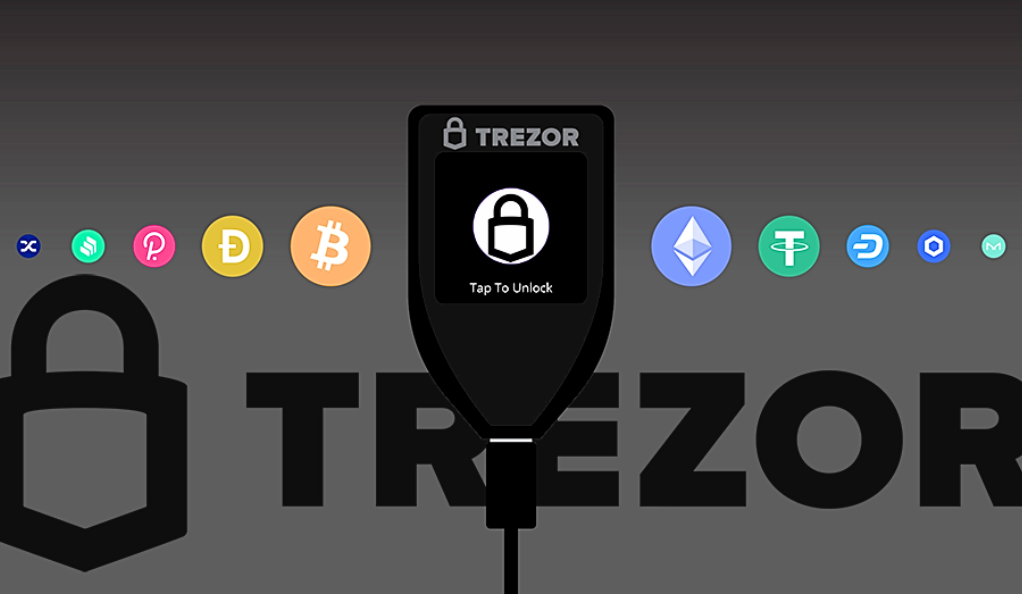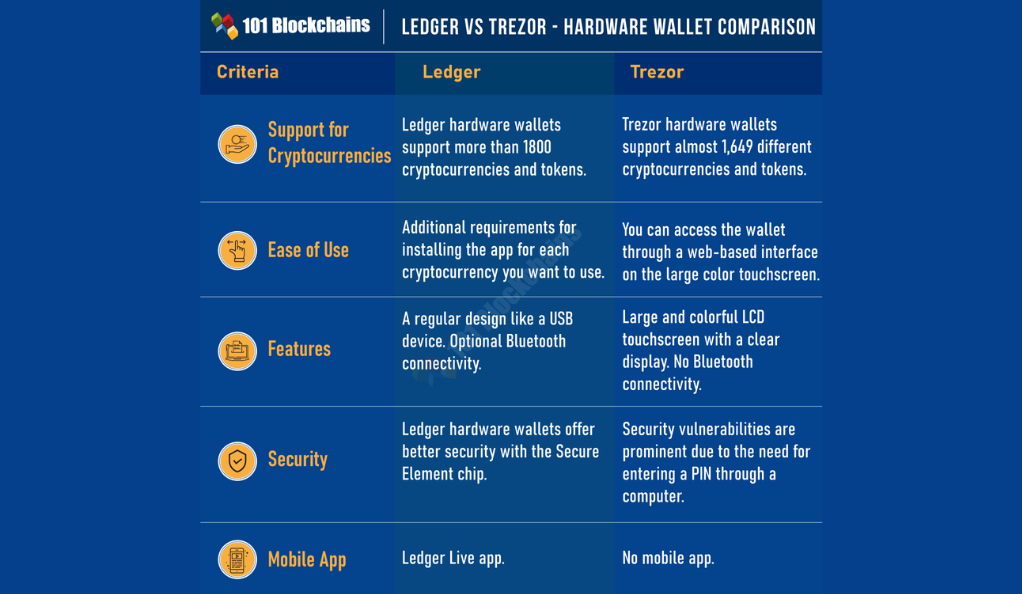In the dynamic world of cryptocurrency, the safety of your investments is paramount. The tools and platforms you choose can significantly impact your crypto experience. Among these tools, hardware wallets like Trezor and Ledger have emerged as frontrunners. But which one truly offers the best protection and features? Let’s delve deeper.
Introduction to Hardware Wallets
The Rise of Cryptocurrency
Cryptocurrency has revolutionized the financial landscape. From being a niche concept a decade ago, it has now become a mainstream investment avenue. With this rise, the need for secure storage solutions has become more pressing than ever.
The Importance of Secure Storage
Your crypto assets are more than just digital numbers; they’re your hard-earned investments. Just as you wouldn’t leave your physical cash unguarded, your digital assets require top-notch security. Hardware wallets, in this context, act as impenetrable digital safes.
Why Hardware Wallets Matter in Crypto Investment
Security Features
In an era where cyber threats loom large, hardware wallets offer a sanctuary. They store your private keys offline, ensuring they remain out of reach from hackers. This cold storage method is a gold standard in crypto security.
User Experience
Beyond just security, the ease of use is crucial. A good hardware wallet strikes a balance between robust security features and a user-friendly interface. After all, what good is a wallet if you can’t navigate its features?
Trezor: An Overview

Features and Benefits
Trezor, often hailed as the original hardware wallet, is a beacon of transparency with its open-source platform. This transparency allows for continuous improvements and community-driven enhancements. With support for over 1000 coins and a touch screen interface, it’s a favorite among many.
Potential Drawbacks
However, perfection is elusive. Some users have raised concerns about Trezor’s plastic build, questioning its durability. Additionally, its price might be a barrier for those new to the crypto world.
Ledger: An Overview
Features and Benefits
Ledger, with its flagship products Ledger Nano S and X, is a testament to robust security. Its dual-chip architecture ensures that private keys remain confined within the device. Its sleek design coupled with extensive cryptocurrency support makes it a formidable contender.
Potential Drawbacks
But Ledger isn’t without its critics. Its software’s closed-source nature can be a sticking point for those who prioritize transparency. And while its interface is functional, some users feel Trezor offers a more intuitive experience.
Head-to-Head Comparison

Security
Both Trezor and Ledger are bastions of security in the crypto realm. While Ledger’s dual-chip system offers an added layer of protection, Trezor’s open-source nature means it’s constantly under community scrutiny, ensuring vulnerabilities are quickly addressed.
User Interface
User experience is subjective. Some users swear by Trezor’s touch screen, praising its intuitiveness. Others lean towards Ledger, valuing its straightforward, no-nonsense approach.
Supported Cryptocurrencies
In the ever-expanding universe of cryptocurrencies, both wallets offer extensive support. Trezor, however, takes a slight lead, supporting a broader range of coins.
Price Point
Budget considerations are vital. While Trezor’s premium models might be on the pricier side, Ledger offers options like the Nano S, which is more budget-friendly.
User Testimonials and Reviews
Positive Feedback
Many users appreciate the security features and user experience offered by both wallets. Jane, a crypto enthusiast, mentioned, “Both are top-tier, but Ledger’s security is unmatched.”
Points of Criticism
No product is immune to criticism. Mike, a seasoned crypto trader, feels that “Trezor needs to work on its build quality, while Ledger could improve its software transparency.”
Making the Right Choice for Your Needs
Assessing Your Priorities
Choosing between Trezor and Ledger boils down to personal preferences. Do you value an open-source platform or a dual-chip security architecture? Understanding your priorities is the first step.
Trusting Your Research
While reviews and testimonials offer insights, it’s essential to trust your research. Dive deep, compare features, and make an informed choice.
Conclusion
As the crypto landscape evolves, so will the tools associated with it. Hardware wallets, with their blend of security and user experience, are poised to remain at the forefront of crypto storage solutions.
In the end, the battle between Trezor and Ledger isn’t just about choosing a winner. It’s about understanding the continuous evolution of crypto security and ensuring your assets remain safe in this digital age.
FAQs
Trezor supports over 1000 coins, slightly more than Ledger.
Yes, Trezor’s software is open-source, allowing for community-driven improvements.
Ledger uses a dual-chip architecture to ensure private keys never leave the device.
This is subjective. Some users prefer Trezor’s touch screen, while others find Ledger’s interface straightforward.
Yes, hardware wallets store private keys offline, making them safe from online threats.